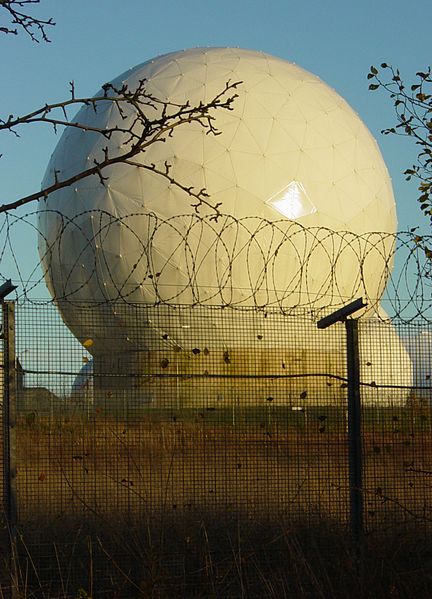 My very quick search suggests that there’s insufficient work on this subject. I know that Alexander Cooley has turned up some pretty amazing things on older intelligence cooperation, Mark Laffey and Jutta Weldes have done some great work on policing and global governance, and there’s a lot of cognate stuff under the rubric of bio-politics (e.g.) and permanent states of exception, but it seems to me that more direct analysis is called for.
My very quick search suggests that there’s insufficient work on this subject. I know that Alexander Cooley has turned up some pretty amazing things on older intelligence cooperation, Mark Laffey and Jutta Weldes have done some great work on policing and global governance, and there’s a lot of cognate stuff under the rubric of bio-politics (e.g.) and permanent states of exception, but it seems to me that more direct analysis is called for.
Because, for example:
France’s foreign intelligence service intercepts computer and telephone data on a vast scale, like the controversial US Prism programme, according to the French daily Le Monde. ….Connections inside France and between France and other countries are all monitored, Le Monde reports. ….The UK spy agency GCHQ is reported to run a similarly vast data collection operation, co-operating closely with the NSA.
And, as I noted earlier, the UK isn’t the only one involved in cooperative Big Surveillance (a term already in use, alas) arrangements with the US.
Daniel H. Nexon is a Professor at Georgetown University, with a joint appointment in the Department of Government and the School of Foreign Service. His academic work focuses on international-relations theory, power politics, empires and hegemony, and international order. He has also written on the relationship between popular culture and world politics.
He has held fellowships at Stanford University's Center for International Security and Cooperation and at the Ohio State University's Mershon Center for International Studies. During 2009-2010 he worked in the U.S. Department of Defense as a Council on Foreign Relations International Affairs Fellow. He was the lead editor of International Studies Quarterly from 2014-2018.
He is the author of The Struggle for Power in Early Modern Europe: Religious Conflict, Dynastic Empires, and International Change (Princeton University Press, 2009), which won the International Security Studies Section (ISSS) Best Book Award for 2010, and co-author of Exit from Hegemony: The Unraveling of the American Global Order (Oxford University Press, 2020). His articles have appeared in a lot of places. He is the founder of the The Duck of Minerva, and also blogs at Lawyers, Guns and Money.


Yes! Of course, the problem for researchers is that the scarcity of the information they need is endogenous to the process they hope to investigate. It’s the same thing that confounds efforts to study election fraud, corruption, and the political roles of organized criminal groups. Our mental models tell us these things are hugely important, but it’s really hard to see them and often dangerous even to try.
Check Tim Crawford’s contribution to ISA’s compendium project on intelligence cooperation. It surveys the literature on the subject including the “growing “globalized” web of intelligence liaisons.” Richard Aldrich’s review essay is germane as well. Both will provide pointers to some of the literature on the subject. See citation here: https://intellit.muskingum.edu/refmats_folder/teachingiss.html
The abstract to one of Aldrich’s articles follows:
“The most important recent change within the realm of intelligence and security services has been the expansion of intelligence co-operation. The growing connectivity between both foreign intelligence services and also domestic security services means that we might speak – not just of growing international co-operation – but perhaps even of global co-operation. This essay considers the complex interplay of intelligence and globalization since 1989. It argues that there is an obvious tension between a developing global style of co-operative activity and the traditional mechanisms of oversight, which have tended to be national. Accordingly, it moves on to discuss the recent efforts by national, regional and international systems of inquiry to examine issues that involve intelligence co-operation. It suggests that while formal committee-type mechanisms have limited purchase, they are not the only options for oversight in a globalized context.”
Citation: Richard J. Aldrich (2009) Global Intelligence Co-operation versus Accountability: New Facets to an Old Problem, Intelligence and National Security, 24:1, 26-56,